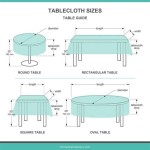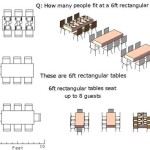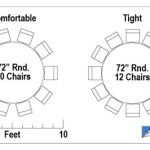Exploring the Benefits of Round Table Discussions
Round table discussions offer a unique format for collaborative communication and knowledge sharing. Unlike traditional presentations with a single speaker addressing an audience, round tables foster a more egalitarian environment where all participants have an equal opportunity to contribute. This dynamic creates a sense of shared ownership over the conversation, encouraging deeper engagement and more robust exploration of topics.
One of the primary benefits of round table discussions is the promotion of diverse perspectives. By bringing together individuals with varying backgrounds, experiences, and expertise, round tables can generate a wider range of ideas and insights. This diverse input can lead to more innovative solutions and a deeper understanding of complex issues. The absence of a designated "expert" encourages participants to challenge assumptions and consider alternative viewpoints, fostering critical thinking and intellectual growth.
Round tables are particularly effective in fostering open and honest communication. The informal, conversational setting can help participants feel more comfortable sharing their thoughts and opinions, even if those opinions are unconventional or controversial. This open dialogue is crucial for building trust and rapport among participants, creating a foundation for productive collaboration.
The participatory nature of round tables enhances active listening skills. Because every participant has a voice, individuals are encouraged to listen attentively to one another, not just to formulate their own responses but to understand and appreciate the perspectives of others. This active listening fosters empathy and mutual respect, enhancing the overall quality of the discussion.
Round table discussions also offer an effective platform for problem-solving. By bringing together individuals with different skillsets and areas of expertise, round tables can facilitate a collaborative approach to problem identification and solution generation. The sharing of diverse perspectives can often lead to creative solutions that might not have emerged in a more traditional, hierarchical setting.
The format of round table discussions is inherently flexible and adaptable to various contexts. They can be used effectively in business settings for brainstorming sessions, strategic planning, and team building. In educational settings, round tables can facilitate student-led discussions, encourage critical analysis of texts, and foster collaborative learning. In community settings, round tables can provide a forum for public dialogue, citizen engagement, and community problem-solving.
The benefits of round tables extend beyond the immediate discussion. Participants often report leaving these sessions feeling more informed, energized, and connected to their peers. The experience of actively engaging in a thoughtful discussion can be both intellectually stimulating and personally rewarding, contributing to a sense of shared purpose and community.
Furthermore, round tables can serve as a valuable tool for professional development. By engaging in discussions with peers and experts, individuals can gain new knowledge, refine their communication skills, and expand their professional networks. This type of informal learning can be particularly valuable in rapidly changing fields where staying up-to-date on the latest trends and best practices is crucial.
The structure of a round table discussion also promotes equitable participation. Unlike settings where a single speaker dominates the conversation, the round table format encourages each participant to contribute their thoughts and ideas. This equitable distribution of speaking time ensures that everyone feels heard and valued, fostering a sense of inclusivity and mutual respect.
Round table discussions can also be used effectively for conflict resolution. By providing a neutral space for open dialogue, round tables can help facilitate communication between parties in conflict. The structured format and emphasis on active listening can help participants understand each other's perspectives, identify common ground, and work towards mutually acceptable solutions.
In the context of organizational decision-making, round tables can offer a valuable alternative to top-down approaches. By involving a wider range of stakeholders in the decision-making process, round tables can ensure that decisions are informed by diverse perspectives and reflect the needs and priorities of all affected parties. This inclusive approach can lead to more effective and sustainable decisions.
Finally, round table discussions can be a powerful tool for fostering a culture of collaboration and open communication within organizations. By providing regular opportunities for individuals to engage in thoughtful discussions with their peers, organizations can create a more collaborative and inclusive work environment. This can lead to increased employee engagement, improved teamwork, and ultimately, better organizational performance.

Thg Apps Special Offers

Margins Roundtable It Is All About Creating Value

Whf Roundtables On Hypertension In Accra Ghana World Heart Federation

Six Days Left Closing Arguments Jokes And Burning Ballots

Hr Roundtable Eeo Workplace Policies In A Changing Legal Landscape Cbia

Rpa Roundtables Think Tanks

Mixed Practice With Rounded Numbers Worksheets K5 Learning

Whf Roundtables On Hypertension In Accra Ghana World Heart Federation

Safety Roundtable Ice At Your Door Stay Cool Compliant Cbia

Global Forums Industry Standards And Strategic Initiatives
Related Posts








